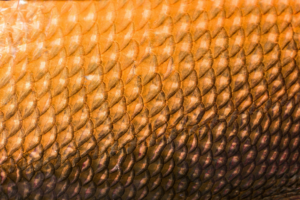30/07/2019
The UK IPO recently undertook a Worldwide review of Artificial Intelligence (AI) patents, focussing specifically on patenting by the UK AI Sector. The report is available here and makes interesting reading. A summary of the main take-away points is given below.
The report has been prepared in conjunction with Glass AI, a UK tech company that reviews companies active in the AI field by analysing the public content of their website. The report is intended to complement the report produced by the World Intellectual Property Organisation earlier in the year. That report is available here.
AI is one of the “Grand Challenges” mentioned in the UK government’s Industrial Strategy, and it has been estimated that AI will add £630bn to the UK economy by 2035.
UK Start Ups and Technology Companies such as Deepmind, Magic Pony Technology and Swiftkey are identified in the report as leading the way in machine learning and neural network innovation. Such innovations typically have wide application, and are not limited to particular implementations or technical fields.
Deepmind was purchased by Google in 2014 for £400 million, and is well known for developing AlphaGo, the first computer program to beat a professional Go player on a full size board in 2016. Magic Pony Technology, which received backing from Innovate UK, uses machine learning to improve video and image processing and was purchased by Twitter for £102 million in 2016. Swiftkey uses AI for predictive text and was purchased by Microsoft for £174 million in 2016. UK based technology companies appear particularly attractive to US investors.
In line with other countries, the percentage of UK patent applications relating to AI innovations has more than doubled over the past decade. However, the UK is one of the countries where AI related patent applications, as a percentage of all applications filed, has risen particularly strongly. Figure 5 on page 11 of the report, for example, shows that the USA, the UK and Australia have experienced the largest increase in the proportion of patenting activity relating to AI compared with other sectors. Key Areas of AI patent growth in the UK are identified as relating to transport, image processing and telecommunications.
The report notes that around 88% of AI-related patent applications first filed in the UK are also protected elsewhere, a fact attributed to the perceived relative importance of the technology, as well as the importance of the overseas market. For the US and China, the number of patent applications filed overseas is only 53% and only 19% respectively. The most attractive overseas market for UK based applicants is the US, with the European Patent Office (EPO) second.
Figure 6 on page 12 of the report, shows that the top applicants in AI worldwide are large US and Japanese companies, such as IBM, Microsoft, Google, Sony, Fujitsu, NEC, and Toshiba, as well as a number of Chinese Universities. For applications filed at the UK IPO , the top applicants are IBM, Fisher Rosemount Systems, Ford Global Technologies, Baker Hughes and Fujitsu. British Telecom, IBM (UK) and BAE systems, are the top three UK based applicants filing worldwide.
Summary
There is likely to be much more activity in AI innovation than has been reflected in the patent database, due to the fact that much of AI can often fall within the exclusions from patent protection (computer software, mental acts, or business methods as such). While these exclusions do not affect developments in machine learning or neural network, they can make securing patent protection for applications of AI to other areas more challenging. This is an area in which Reddie & Grose has considerable expertise. For more guidance, please contact us, or refer to our other articles in this area, such as our discussion of changes in the EPO Guidelines for Examination and recent developments with computer implemented inventions at the UK IPO .
This article is for general information only. Its content is not a statement of the law on any subject and does not constitute advice. Please contact Reddie & Grose LLP for advice before taking any action in reliance on it.


